Standard care for SIBO
Conventional medical treatment for SIBO often involves prescription antibiotics and prokinetic drugs. Rifaximin is an antibiotic used to treat SIBO by killing bacteria in the intestine. But not all individuals with SIBO respond to Rifaximin with improved symptoms or breath tests and retreatment may be needed.1 In one study, 38% of breath-test positive IBS patients failed to show clinical improvement after a first course of Rifaximin treatment.2
Prescription prokinetic agents used to treat SIBO discourage bacterial overgrowth by increasing the cleansing intestinal waves (peristalsis) of the small intestine.3 Erythromycin and other drugs are often used after an initial course of antibiotics to help prevent a recurrence of SIBO.4
It is common for the symptoms of SIBO to reoccur. The plan of care is focused on management, namely achieving and maintaining remission.
Elemental diet for dietary management of SIBO
A medically supervised elemental diet is often used by patients with SIBO because while the nutrients in an elemental diet are easily assimilated into the body, the bacteria residing in the gastrointestinal tract are thought to have reduced activity and proliferation — essentially “starving” them.5
Elemental diets should contain no dietary fiber or prebiotics that can stimulate growth of bacteria, which can be problematic for individuals with SIBO. In addition, elemental diets for SIBO should be strictly hypoallergenic and free from plant and animal-derived proteins and peptides, as well as contain no gluten, wheat, yeast, corn, or other hard to digest nutrients.
Protein in Physicians’ Elemental Diet is supplied in the form of 20 essential and non-essential individual, free-form amino acids.
Clinical studies using elemental diets for dietary management of SIBO
Elemental diets have been shown to be effective for the nutritional management of SIBO. In a 2004 study, 93 patients with symptoms of irritable bowel syndrome and abnormal lactulose breath tests indicating the presence of SIBO were given an elemental diet formula as the sole source of nutrition for two weeks. After two weeks, subjects were retested and those who still had abnormal tests were provided an additional week of the elemental diet. At the end of three weeks, 85% of subjects had normalized breath test results and this correlated with symptom improvement.6
Diagnosis & testing
The most common testing procedures used to confirm a diagnosis of SIBO are based on the detection of certain gasses in a person’s breath. Bacteria present in the gut ferment certain sugars, carbohydrates, and dietary fiber-producing gasses such as hydrogen and methane that are absorbed into the blood and expelled in a person’s breath. Laboratory breath tests can detect the amount of these gasses in the breath before and for 2-3 hours after a person drinks a challenge solution containing a test sugar (lactulose or glucose). An increase in the amount of these gasses indicates the presence of bacterial overgrowth.7
References
-
Pimentel, M., Morales, W., et al (2011) Effectives of rifaximin treatment and retreatment in nonconstipated IBS subjects. Dig Dis Sci, 2067-72.
-
Yang, J., Lee, HR., Low, K., et al (2008) Rifaximin versus other antibiotics in the primary treatment and retreatment of bacterial overgrowth in IBS. Dig Dis Sci, 169-74.
-
Longo, WE., Veranava, AM. (1993) Prokinetic agents for lower gastrointestinal motility disorders. Dis Colon Rectum, 696-708.
-
Sachdev, A., Pimentel, M. (2013) Gastrointestinal bacterial overgrowth: pathogenesis and clinical significance. Ther Adv Chronic Dis., 223-231.
-
Russell. (1975) Progress report: elemental diets. Gut. 68-79.
-
Pimentel M, Constantino T. Kong Y, et al.A 14-day elemental diet is highly effective in normalizing the lactulose breath test. Dig Dis Sci. 2004 Jan;49(1):73-7.
-
Saad, R., Chey, W. (2014) Breath testing for Small Bacterial Intestinal Overgrowth: maximizing test accuracy. Clinical Gastroenterology and Hepatology: 1964-1972.


